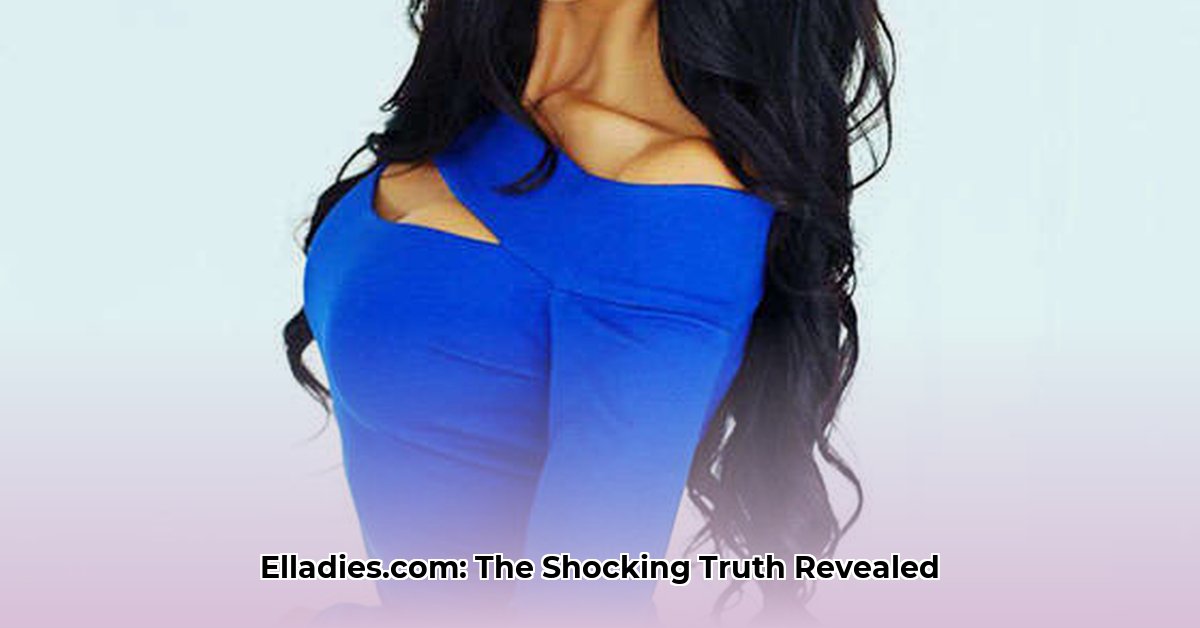
Ethical Online Shopping: A Guide to Conscious Consumption
Shopping for clothes ethically can be challenging, but it's increasingly important. This article focuses on safe and responsible alternatives to websites with inappropriate content. We'll show you how to navigate the world of ethical fashion and make informed choices.
This article will not review elladies.com due to ethical concerns. I aim to provide safe and helpful information only.
Why Ethical Fashion Matters: A Deeper Look
Did you know that the fashion industry is a major contributor to environmental pollution and social injustice? Fast fashion often relies on exploitative labor practices and unsustainable production methods. Switching to ethical fashion is a powerful way to support fair wages, environmental protection, and sustainable practices. Isn't it time we all asked ourselves: What impact does my wardrobe have on the world?
Many ethical and sustainable businesses are dedicated to transparency and environmental responsibility. This means they share information about their supply chains and manufacturing processes.
Finding Ethical Retailers: A Step-by-Step Guide
Finding ethical brands might seem daunting, but it's simpler than you think. Follow these steps to ensure responsible online shopping:
Targeted Searches: Begin by searching for keywords like "ethical fashion," "sustainable clothing," "eco-friendly brands," or "fair trade apparel," ensuring you discover a wide range of options. The more specific your search, the better the results.
Comprehensive Reviews: Check multiple independent review websites and look for honest, detailed feedback from verified customers. Their experiences provide invaluable insights into the retailer's reliability and the quality of their products. Do reviews consistently praise ethical practices and product quality?
Certification Verification: Reputable ethical brands often display certifications from organizations like Fair Trade, GOTS (Global Organic Textile Standard), or B Corp. These certifications offer verification of their ethical and sustainable practices.
Transparency Assessment: Look for companies that openly share information about their supply chains, materials, and manufacturing processes. Transparency is a key indicator of a business committed to ethical practices.
Support Small Businesses: Often, small, independent businesses prioritize ethical production and worker well-being more than large corporations. By supporting these businesses, you're directly contributing to their success and sustainability.
Ethical Shopping: Weighing the Pros and Cons
Ethical fashion offers considerable benefits, but it's important to understand its limitations:
| Advantages | Disadvantages |
|---|---|
| Support for fair wages and worker rights | Potentially higher prices than fast fashion |
| Reduced environmental impact | Smaller selection of styles and sizes available |
| Positive social impact | Potentially longer shipping times |
| Higher quality, more durable clothing | Requires more research and effort to find suitable brands |
| Supporting businesses with strong values | Risk of encountering "greenwashing" (false claims) |
Remember, ethical shopping is an investment in a better future. While it might require more effort upfront, the long-term benefits for both people and the planet far outweigh the inconveniences. Every purchase is a vote for the kind of world you want to see.
Choosing Sustainable Alternatives: Practical Steps for Conscious Consumers
The shift to ethical fashion isn't just a trend; it's a movement toward a more responsible and sustainable future. By consciously selecting our clothing, we can collectively promote fair labor practices and environmental stewardship. Remember, your purchasing power supports the values you hold dear. Let's build a wardrobe reflecting our commitment to a better world.